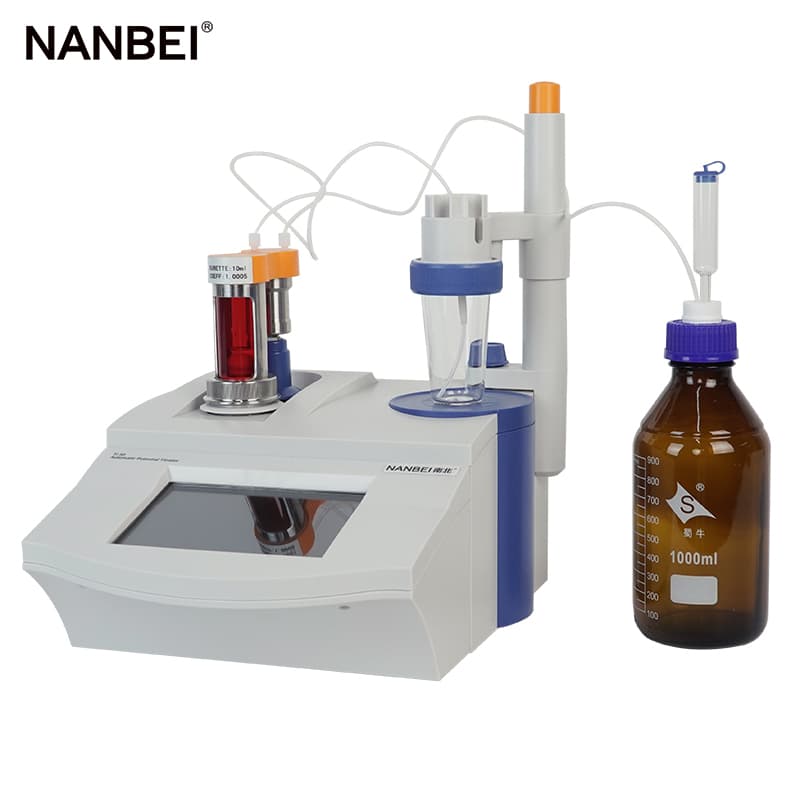- Email: nanbei2@nanbei-china.com
Karl Fischer titrators require professional maintenance. Daily careful maintenance, regular upkeep and proper operation can ensure the accuracy of Karl Fischer water titration results.
Daily maintenance is as follows:
1. Ambient temperature and humidity
Temperature 5-40℃, humidity <80%. If it is not reached, the equilibrium time will be extended, and the drift value will change continuously during equilibrium, and titration will be repeated. The temperature can be reached in general laboratories, but the air usually needs to be dehumidified.
The lab Karl Fischer titrator has three solvent bottles, each with a dryer, and there is another dryer on the instrument that has a great influence on the stability of the instrument. If it is not replaced in time, the instrument equilibrium will be extended or even unable to be balanced. In addition, the sealing of the instrument should also be kept good to reduce the impact of the environment.
2. Reagent selection
The selection of reagents is very important. The quality directly affects the accuracy of the test and the stability of the instrument. The titrant should be Karl Fischer titrant. If the moisture analyzer is not used for a few days, the titrant in the burette and the pipette in the instrument will be stratified. All the stratified liquid must be discharged before use, otherwise it will affect the accuracy of the measurement.

3. Use of the instrument
Before using the automatic Karl Fischer titrator, first shake the bottle containing the titrant several times to make it uniform, then check whether there are bubbles and stratification in the pipes through which the titrant flows. If there are, remove them by draining the liquid. Then perform pre-titration and calibration of the titrant (because the titrant will evaporate and the concentration will change, so the specific calibration time should be determined according to the humidity of the environment to ensure the accuracy of the measured data).